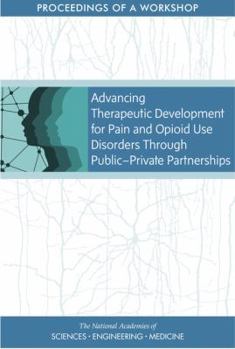Advancing Therapeutic Development for Pain and Opioid Use Disorders Through Public-Private Partnerships: Proceedings of a Workshop
Chronic pain is one of the most prevalent, costly, and disabling health conditions in the United States. Estimates show that more than 11 percent of the American population suffer from chronic pain, yet the federal pain research investment has been minimal. In parallel with a gradual increased recognition of the problems of treating chronic pain, the opioid epidemic has emerged as a growing public health emergency. The intersection of these two crises lies in the fact that an unintended consequence of treating pain has been an increasing number of opioid prescriptions and diversion of drugs for illicit purposes.
In May 2017, the National Institutes of Health (NIH), and the National Institute on Drug Abuse announced a public-private partnership to develop solutions to the opioid crisis and cut in half the time it takes to develop non-addictive analgesics. To advance the planning of NIH's anticipated public-private partnerships, the National Academies' Forum on Neuroscience and Nervous Systems Disorders hosted a public workshop that brought together a diverse group of stakeholders from academia, federal agencies, advocacy organizations and companies developing therapeutics for pain and opioid use disorders. Participants discussed potential strategies to accelerate development of non-addictive pain medications and treatments for opioid use disorders. This publication summarizes the presentations and discussions from the workshop.





